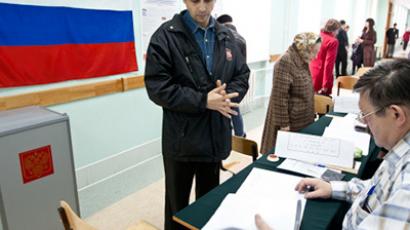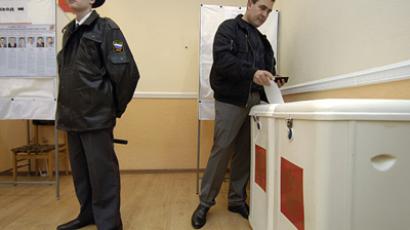‘OSCE biased in assessing elections’

The OSCE Office for Democratic Institutions and Human Rights (ODIHR) has no universal method for evaluating elections, believes the president of the All-Russia Public Institute for Election Law,Igor Borisov.
The ODIHR wants to send to Russia 60 observers for the pre-election period and 200 observers on a short-term mission to monitor the course of the election on December 4. The Central Election Commission says the figures are excessive.ODIHR director Janez Lenarcic had earlier insisted on sending 450 representatives for the short mission. Today, the figure is less than half the size, but Russia wants it to be reduced even more. “It’s a political question. The figure mentioned by Mr Lenarcic has no methodological justification behind it,” Borisov said. He added that in the absence of an appropriate method, neither 450, nor 250 nor 100 observers can objectively evaluate the election. At the same time, Igor Borisov hopes that a solution will be found. “It will be a political compromise,” he said. “I don’t know why, but Mr Lenarcic is not willing to make concessions and keeps saying that ‘there can be no bargaining.’ But it’s not bargaining but a question of a universal approach.” Borisov noted that Europe deliberately avoids universal standards in order to retain the ability to make a “political maneuver in the assessment of national procedures.” He went on to say that Russia will accept the approach of CIS observers which, unlike that of the OSCE, is not politically motivated and is “based on objective joint documents.”














